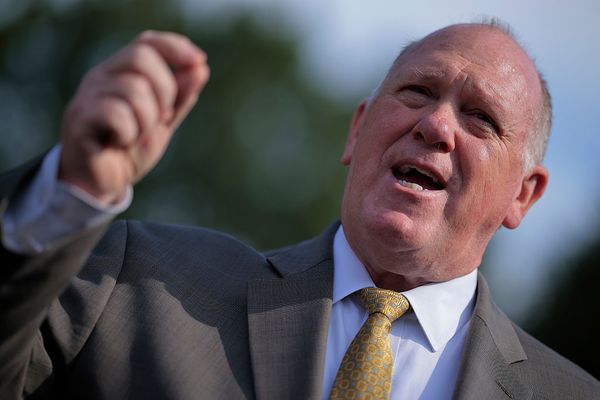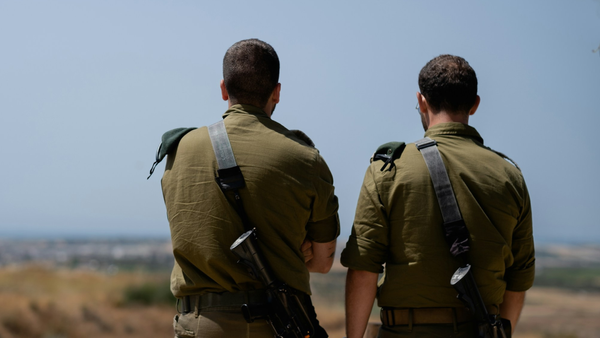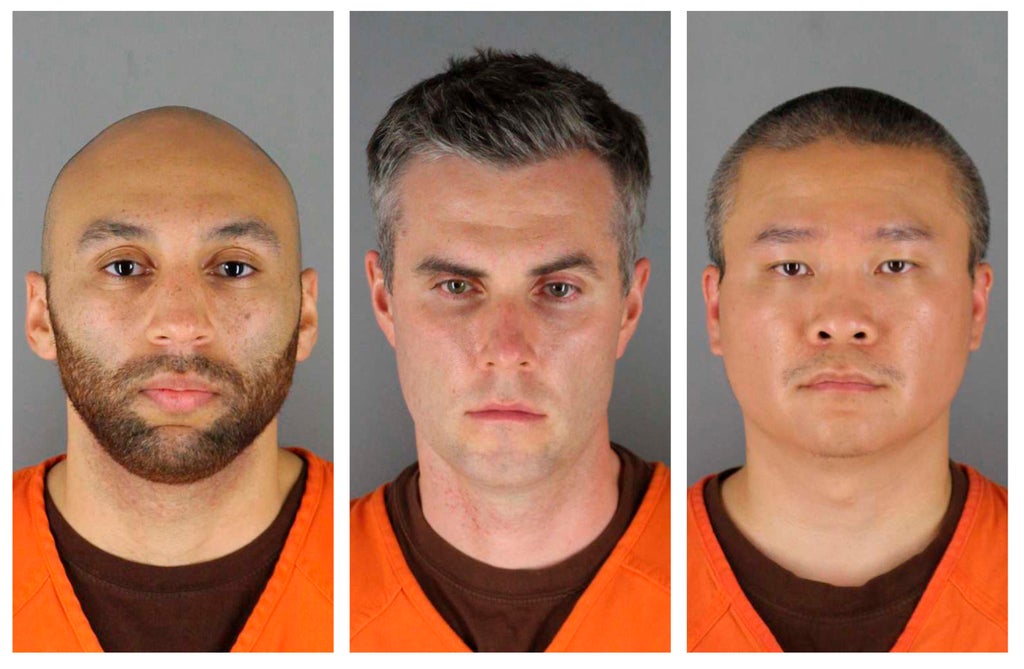
The three former police officers who watched as their fellow officer Derek Chauvin murdered George Floyd were all found guilty of violating the Black man’s civil rights in a federal court on Thursday.
Tou Thao, 36; J Alexander Kueng, 28; and Thomas Lane, 38, were convicted of depriving Mr Floyd of his civil rights by failing to provide him with medical care when he was pinned down and dying under Chauvin’s knee for nine minutes and 29 seconds on Memorial Day 2020.
Thao and Kueng were also convicted of depriving Mr Floyd of his civil rights by failing to intervene to stop Chauvin’s unreasonable use of force.
The verdict came after a month-long trial where jurors heard how the three officers “chose to do nothing” to try to stop Chauvin or to try to save the life of the Black man as he lay handcuffed face down pressed into the road.
Kueng pinned down Mr Floyd’s back, Lane held down his legs and Thao kept a crowd of bystanders back and stopped them intervening.
The defence largely focused around trying to pin the blame on Chauvin as the most senior officer on the scene as well as the officers’ claims of a lack of training and experience in the Minneapolis police department and being distracted by the bystanders on the scene.
After around 13 hours of deliberations, the jury rejected this defence finding all three guilty on all charges.
Here’s what happens now:
Sentencing
A sentencing date has not yet been set, with Judge Paul Magnuson allowing them to be released on bond ahead of the hearing.
Both charges carry a maximum sentence of life in prison.
While federal sentencing guidelines - such as a defendants’ prior criminal history - mean it is unlikely they will receive the maximum penalty, their sentences could be high because the jury unanimously agreed that all three officers’ actions resulted in Mr Floyd’s death.
After the verdict, Mr Floyd’s brother Philonise Floyd said he hopes the judge will hand down the maximum sentence.
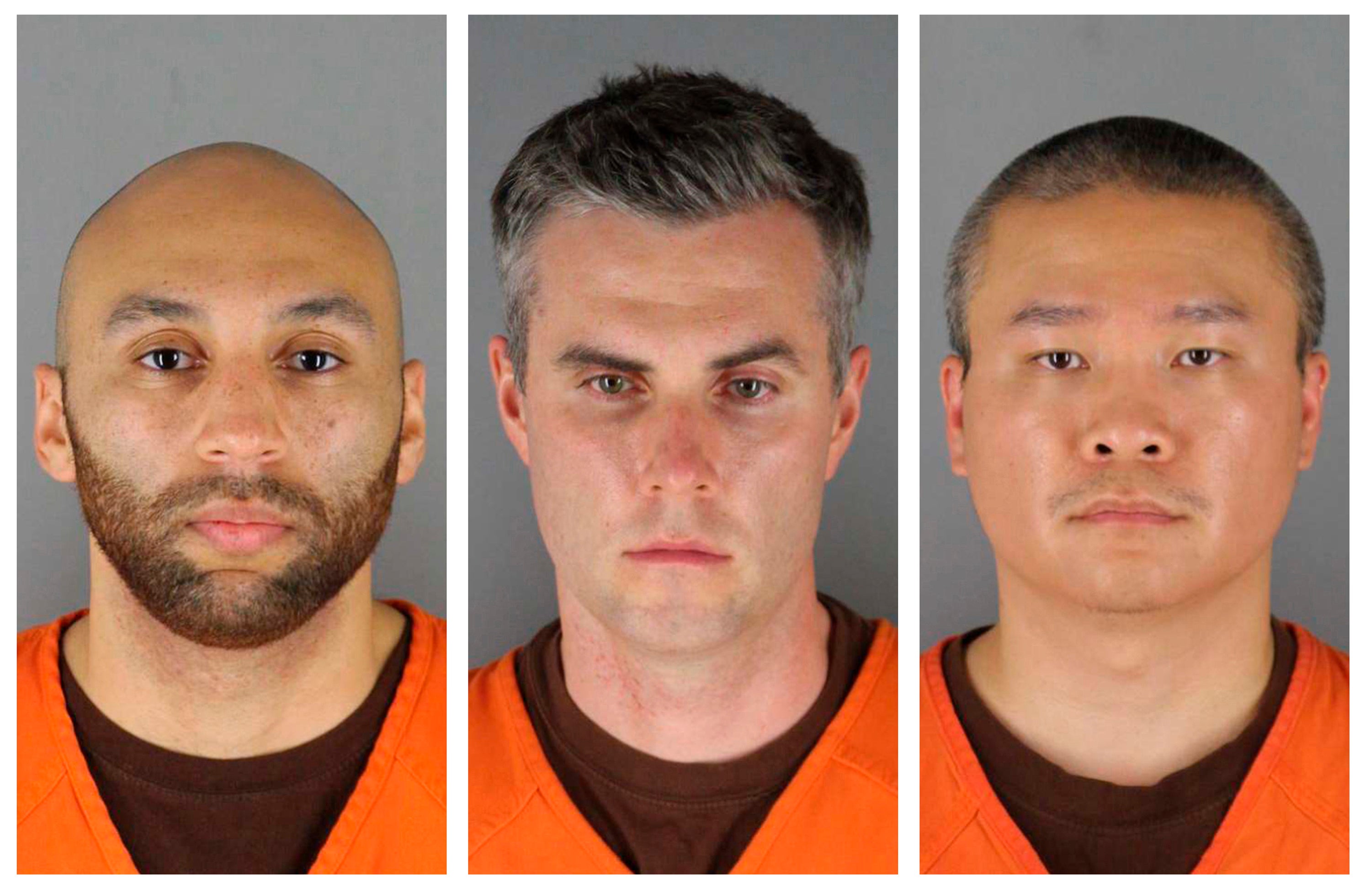
The state trial
Mr Thao, Mr Kueng and Mr Lane are still awaiting their state trial where they are charged with aiding and abetting murder and manslaughter.
The trial was delayed multiple times - most recently so that there was no risk of interference with their federal trial.
It is now expected to begin in June.
All three officers have pleaded not guilty to the charges.
It remains to be seen whether their conviction on federal charges could sway any of them to seek a plea deal with prosecutors on the state charges.
What about Derek Chauvin?
Chauvin was convicted of murder and manslaughter at his state trial in April and was sentenced to 22-and-a-half years in prison.
He was also due to stand trial with the three officers on federal charges of both violating the civil rights of Mr Floyd and of a Black teenager in a separate incident in 2017.
Chauvin reached a plea deal with federal prosecutors in December.
Under the terms of the deal, he pleaded guilty to the civil rights charges in exchange for being moved to federal prison.
He is yet to be sentenced on the federal charges.
He faces between 20 and 25 years in prison with prosecutors requesting that he be given 25 years, to be served concurrently with his state sentence.
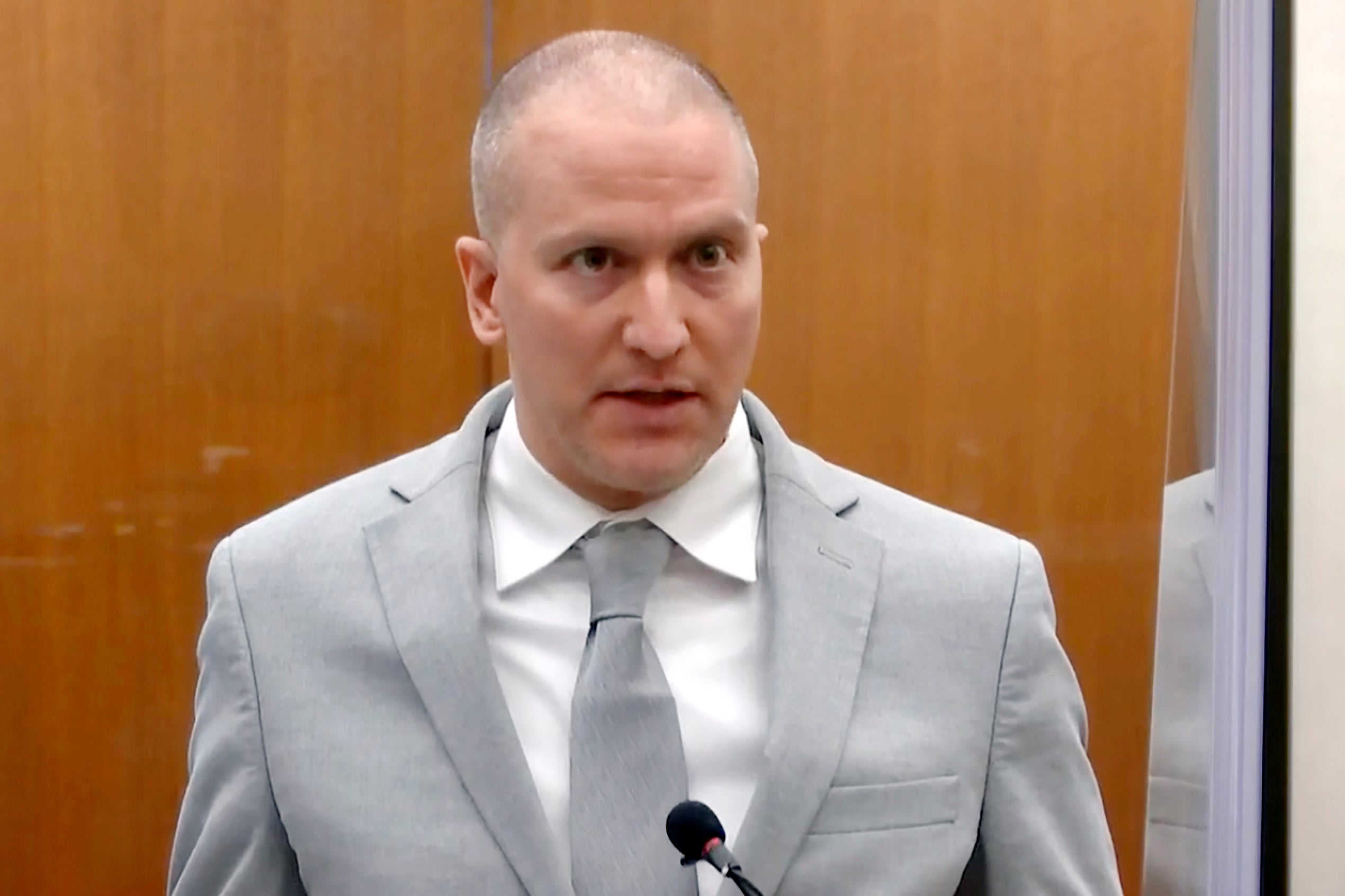
Modern policing
The conviction of the three officers for failing to intervene in Mr Floyd’s murder sends a signal to law enforcement that officers who turn a blind eye to excessive force by their colleagues will also face consequences.
Police officers have long been known to comply with the so-called “blue wall of silence” - an unofficial pact that police officers have to not speak up when they see their fellow officers do something wrong and instead close rank around each other.
Ahead of Thursday’s verdict, CUNY Professor in psychology Azadeh Aalai told The Independent that because there has been very few cases of accountability in policing before, officers are less inclined to speak up.
“There is a sense of impunity that law enforcement gets away with things and if you speak out you risk being ostracised from your colleagues - so are you going to speak up or go along with it?” she said.
However, Chauvin’s murder conviction and now the conviction of the three officers who stood by is dismantling this wall of silence.
Several police officers spoke out against their former colleagues at their trials - first at Chauvin’s and then at the trial of Lane, Kueng and Thao.
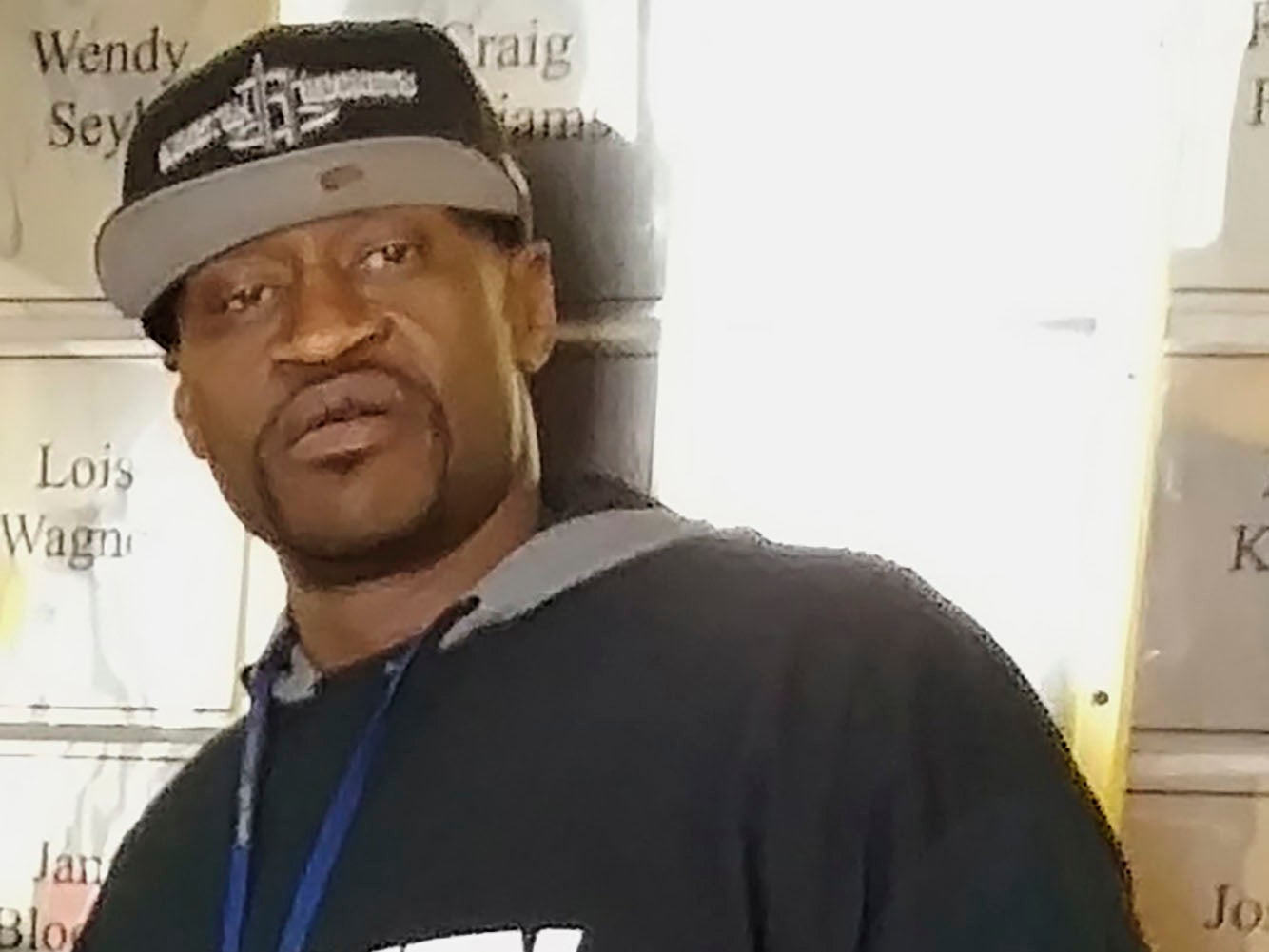
Minneapolis Police Department Inspector Katie Blackwell testified that the trio violated their oath and training when they failed to step in.
Richard Zimmerman, the head of the Minneapolis Police Department’s homicide unit, also condemned their actions, testifying that “if you see another officer using too much force or doing something illegal, you need to intervene and stop it”.
Beyond the courtroom, several states and police departments across the country have introduced duty to intervene policies and sweeping police reforms in the wake of Mr Floyd’s murder.
Professor Aalai said that policies and guilty verdicts send a powerful message to police officers that there are far bigger consequences than being ostracised by colleagues if they turn a blind eye to excessive force.

